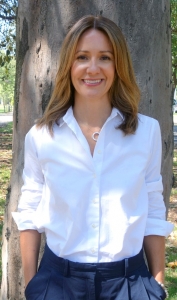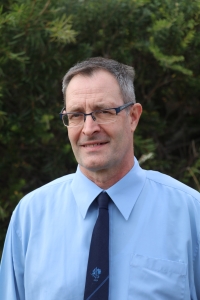The Foundation is a Member-based Company with 31 Members from all parts of the biosecurity community. We welcome interest from potential new Members. It is a company limited by Guarantee, ACNC registered with the structure in place to apply for Deductible Gift Recipient status in the future. It is governed by a Board of Directors who are elected by the members of the company. The Directors cover a range of skills, backgrounds and diversity.
Become a member
The Foundation will foster and grow the collaborative network between communities, governments, research and industry in Australia and overseas developed by the Plant Biosecurity CRC.
Members benefit from:
- Supporting plant biosecurity research, development, extension and delivery activities, including improved science through projects, research scholarships, internships, masterclasses and fellowships;
- Participation which may include co-investment in APBSF managed programs, joint ventures, partnerships and investments with others in Australia and overseas around member identified gaps in plant biosecurity collaborative research, for example environmental biosecurity, post-harvest grains, science capacity building, international linkages (such as developing country biosecurity capacity building masterclasses);
- Investment in plant biosecurity science using commercial returns generated from APBSF ownership of Plant Biosecurity CRC Intellectual Property assets if and when they eventuate;
- APBSF attracting, developing and managing grants and funds which advance plant biosecurity science;
- Being part of a plant biosecurity science and knowledge sharing ‘hub’ of plant biosecurity stakeholders and plant biosecurity scientists;
- Advocating the importance of investing in plant biosecurity science globally, regionally and nationally for agriculture, the environment, regional communities, biodiversity and food security;
- Voting through each membership class to appoint APBSF Directors at General Meetings.
Membership is outlined in the Company Constitution Clause 4. Each application for membership is approved by the Board in accordance with the Company Constitution.
Membership classes have been established which recognise and facilitate participation in the Foundation by the diverse stakeholder group which exists in plant biosecurity science. Stakeholders include large and small commercial and public organisations, community and industry groups and individuals. The classes enable all stakeholders who wish to be members to participate in the APBSF, pay an appropriate membership fee and have their voices heard through a voting structure which is outlined in the Company Constitution.
Membership classes:
- Research, development extension and capacity building provider;
- Regulatory Member – the entity has an interest in the Plant Biosecurity Sector as a biosecurity regulator;
- Industry Member – the entity is an Industry end user or is an entity which is part of the Plant Biosecurity Sector; and
- General Member – the Applicant is a part of, or is interested in, the Plant Biosecurity Sector. In the case of an individual, they cannot represent an entity.
To find out more about joining the Foundation please email info@apbsf.org.au for a membership information pack.
Current members
Research, Development, Extension and Capacity Building provider
- Box Hill Institute TAFE
- CABI
- Cesar Australia
- CSIRO
- La Trobe University
- Murdoch University
- Queensland Department of Agriculture and Fisheries (QDAF)
- Queensland University of Technology (QUT)
- The University of Queensland (UQ)
- University of Western Australia (UWA)
- Western Sydney University (WSU)
General
- Prof John Lovett (Individual)
- Adrian Dinsdale (Individual)
- Dr Alistair McTaggart (Individual)
- Prof Andre Drenth (Individual)
- Dr Benedict White (Individual)
- Burnett Mary Regional Group Ltd
- Davren Global Pty Ltd
- Indonesian Biosecurity Foundation
- Dr Jordan Bailey (Individual)
- Dr Kouame Yao (Individual)
- Sheila Charlesworth (Individual)
- Dr Jane Ray (Individual)
Directors
Jane Frances – Chair
NSW DPI
Jane Frances is a biologist with significant experience in biosecurity management, especially aquatic animals, plants and invasive species, in both the public sector and with a not-for-profit enterprise.
Jane was elected Chair in December 2021.
Read more
Jane has extensive experience in biosecurity emergency responses and has represented the NSW government on consultative committees and national policy forums. Jane has significant expertise with the application of risk assessment to prioritise activities and investment, and seeks to optimise outcomes for industry, public good and the environment.
Jane has worked for NSW Department of Primary Industries for more than 30 years, for the first 11 years in research and since then in a wide variety of management-focused positions.
Dr Olivia Reynolds
AgriFutures Australia
Dr Olivia Reynolds 18 year career in agriculture has spanned universities, government and private (for-profit) business.
Read more
Olivia obtained a PhD Rural Science in Insect Pest Management from the University of New England, Armidale in 2003, funded by a Cotton Cooperative Research Centre scholarship. After two years working at Marks & Spencer Head Office as a Food and Merchandise General Manager in London, UK, Olivia commenced a stimulating and rewarding three year postdoctorate in South African sugarcane with the University of Witswatersrand and the South African Sugarcane Research Institute. Upon returning to Australia in late 2006, Olivia’s career at NSW Department of Primary Industries as a Principal Research Scientist expanded to include a strong biosecurity focus and she has led, or collaborated on, numerous projects and programs of research across horticulture, grains, cotton, cocoa and sugarcane and has extensive project leadership and management experience. This has continued in her role as a Team Lead with Cesar Australia. In 2017, Olivia completed a Women in Leadership Australia, Advanced Leadership Program providing executive level leadership education. Olivia has published >60 peer-reviewed journals, proceedings and book chapters, numerous industry articles, and media interviews and is passionate about working with relevant stakeholders ensuring impact is realised for agricultural industries.
Richard Thornton
Dr Richard Thornton, was the Chief Executive Officer of Natural Hazards Research Australia until the 30 June 2022, and also CEO of the Bushfire and Natural Hazards Cooperative Research Centre between July 2013 and June 2021. He also served as Research Director with the Bushfire CRC from 2004 and 2013. During this period, he has worked with end-user agencies, researchers and the community to deliver high-quality useable and used research outcomes. He is a respected leader in the emergency management sector.
He has extensive research governance and management experience along with risk management and finance expertise and a strong science background.
Richard joined the Board in December 2022.
https://www.linkedin.com/in/dr-richard-thornton/
Read more
As an innovation professional, he has sought to accelerate the adoption of technology and process improvement within grain technology. At CBH, grain technology includes grain quality, protection, laboratories, applied instrumentation and grain coverage. He defines and manages grain technology’s innovation pipeline from ideas through to implemented solutions in conjunction with a team of managers, with responsibility for specific areas above. He actively create networks outside of CBH with potential collaborators and partners including commercial organisations, start-ups and academic institutions.
His career mission is to build capability and growth in organisations through finding synergy and opportunities in internal and external relationships which deliver outcomes well beyond market norms.
Andrew Bishop
Tasmania NRE
Andrew Joined the Board in December 2022.
Andrew has 35 years’ experience working in government in Tasmania and Victoria. He is also Tasmania’s Chief Plant Protection Officer with Biosecurity Tasmania in the Department of Natural Resources and Environment Tasmania. This role has responsibility for representation (state and national) and decision making in relation to the development and maintenance of the Tasmanian plant biosecurity system including plant biosecurity emergency responses. He also has management responsibility for the 25 people in the Plant Biosecurity and Diagnostics Branch which includes Tasmania’s plant biosecurity laboratories (Plant Diagnostic Services).
https://www.linkedin.com/in/andrew-bishop-a848463b/
Read more
He previously worked as the Quality Assurance Manager, GrainCorp Operations Ltd 1994 to 2018, where his major responsibilities included providing management systems to cover organisational, customer and regulatory requirements, primarily via:
- Quality Management and related systems/programs.
- Occupational Health and Safety system/program.
- Policy development and policy/program management for OHS, Safety, Pest Control and Hygiene, Food Safety and Environmental programs.
- Ensuring relevant statutory/regulatory or other compliance measures are met, for example; AQIS, APVMA, EPA, WorkCover, Agriculture Dept’s etc
He also chaired the Plant Biosecurity CRC’s Grains Advisory Panel for many years, overseeing the strategic directions, approval and review of the post-harvest grains portfolio.




